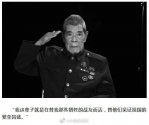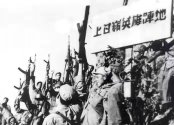A CSG might have around 10k people, given 6000 people on the carrier and 300 people per Arleigh Burke destroyer. Automation might put the costs down further.
The constant assumptions that the Americans would not be willing to pay in blood should be questioned, given that the Americans were quite willing to lose 600k+ people during the COVID-19 crisis simply to save their economy. And naval engagements, unlike land engagements, usually require substantially more people, although the cost of the equipment increases substantially.
===
American warfighting in the Chinese periphery has generally failed, but often for a lack of will. Had the Americans sought to do so, they could have begun a nuclear war on the Korean peninsula during Korea. They could have stayed in Vietnam and just bled the Vietcong dry, implicitly killing massive numbers of Vietnamese civilians at the same time. In both cases, the Americans treated China as a sideshow, and consequently weren't willing to bleed to get the job done.
The next time around, however, the Americans may have the will needed to settle for a telefrag, i.e, a full-scale nuclear exchange to defend their primacy.




